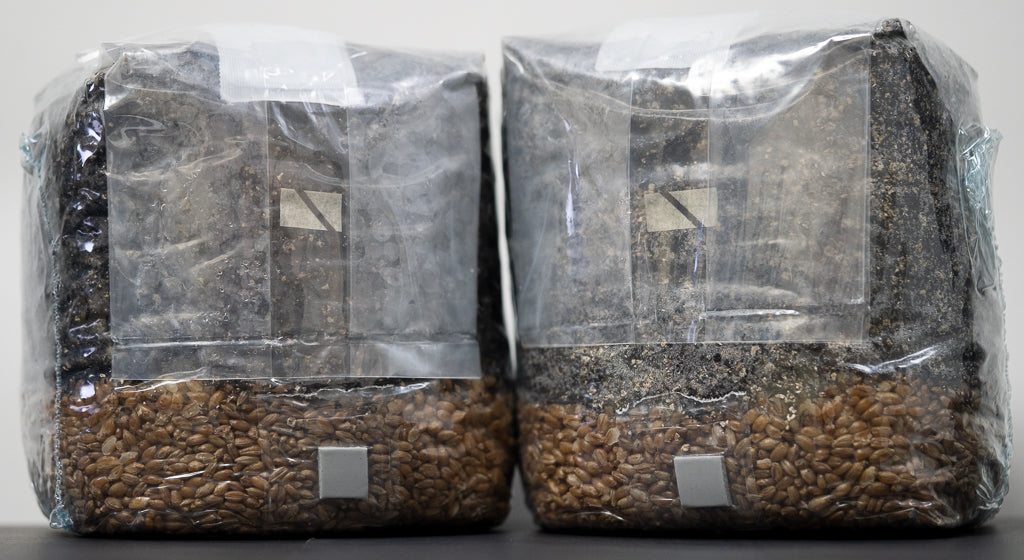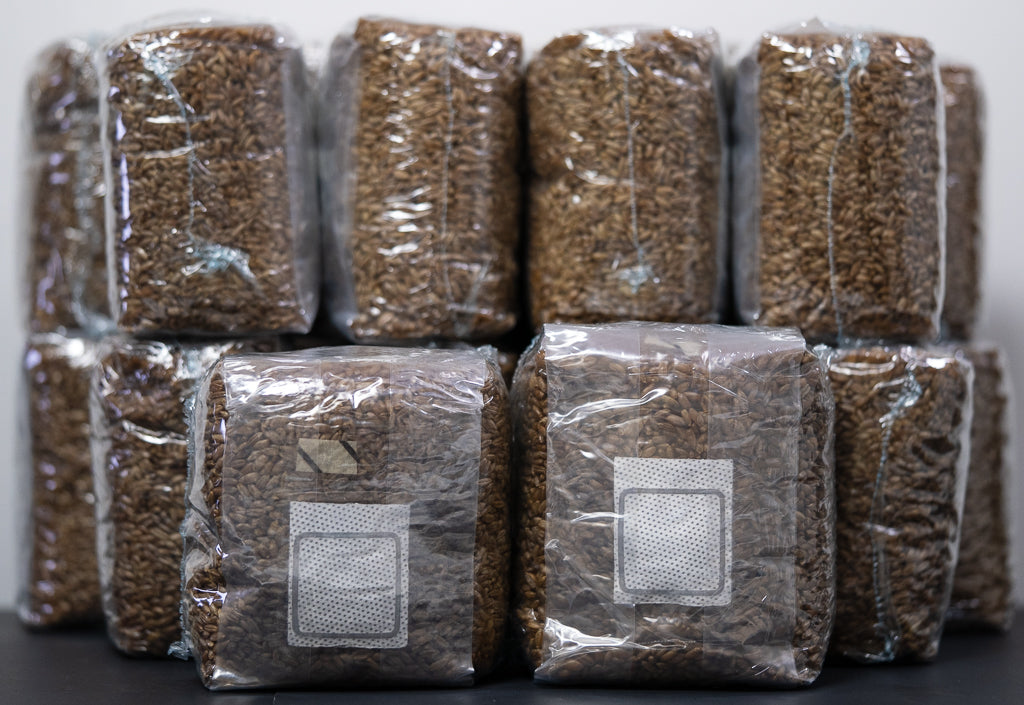King Stropharia-Stropharia Rugosoannulata-Garden Giant-Wine Cap
King Stropharia
Stropharia rugosoannulata
Alias: Garden Giant; Wine Cap; Burgundy Mushroom
Incubation Temperature: 70 - 80F
Fruiting Temperature: 55 - 70F
Spore Print Color: purple-grey to purple-black
Identification: Red-Burgundy-Maroon top about 2-14 inches with a 1-2 inch white stout stalk. Caps are convex at maturity, with a full, bell shape early in the growth. Stalks have an annulus, which is a ring around the stalk. This ring is thick and wavy. Immature gills are a pale white, but as spore production begins, their color deepens from purple-grey to purple-black.
Poisonous Fakes: The burgundy tops and purplish gills stand out in nature. There are no known toxic look-alike.
Growing Outdoors:
King Stropharia will cultivate nicely indoors but shines outside. They love to break down material and can find a secure home in numerous substrates. They can tolerate some filtered direct sunlight but prefer a partial shade environment. In the garden, these powerhouses will create space for root formation for other plants, build soil, and attract earthworms and other beneficial insects. Also, the mycelium will help control the nematode population in the garden.
Growing the garden giants outdoors attracts earthworms to your garden bed because they love that delicious mycelium. Which means it could be an uphill battle to establish a bed. Consider rotating locations from year to year. Also, planting in a rotation will improve soil composition, a long-term solution for soil building. Wine Caps love carbon biomass and will consume it, taking nutrients from the plants growing with it. Care is needed when choosing a location and companion plants. Consider planting annuals that add carbon back to the environment with a mulch layer on top. Wine caps add to the biomass while growing, competing with other plants that do, like strawberries, kale, and spinach. Most perennials and our beloved garden giants will sequester carbon from the air and add it back to the soil.
Growing Indoors:
Try using a host of methods to cultivate the every forgiving King Stropharia, from mono tubs to fruiting in the bag. Attempt a new technique or perfect an old one for maximum yields.
Favorite Substrates:
Rye Grain, Straw, Hardwoods, Corn Cobs, Sawdust… Try any decaying material in your garden. Use a sterilized rye grain to rapidly develop your spawn to add to your garden or mono tub.


